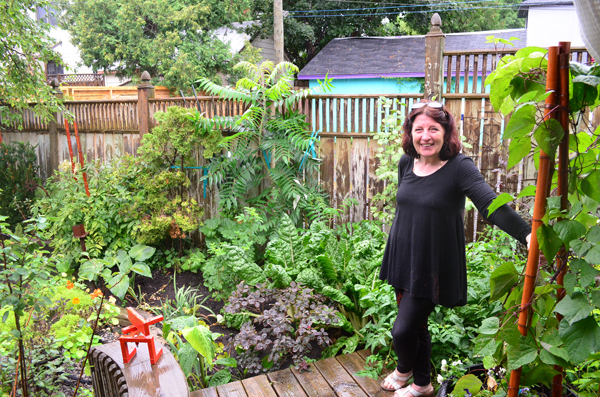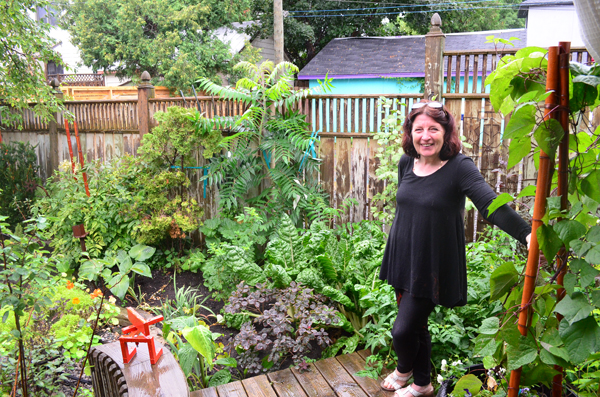By Jack Lawson –
For Wendy Feldberg, inspiration can come in the form of a falling leaf.
“One day I was bathing a piece of fabric in vinegar, after using nails to create rust stains,” says Feldberg. “A leaf fell on the fabric. I left it, and when I came back it had imprinted on the design.”

Feldberg specializes in the art of eco-dyeing, or contact printing. To create designs, Feldberg uses the pigments extracted from plants to colour different textured fabrics, like paper or silk. Feldberg soaks the fabric in water mixed with a mordant, or binding agent for the dye. She then wraps the fabric around a leaf or piece of plant matter and steams the bundle over high heat for an hour.
The resulting fabric can be a swath of gentle purples, pulled from a maple leaf, or bright oranges and greens. Other pieces combine rust staining, stitching, and canvas for mounting purposes.
“Painters are concerned with what two colours on a canvas speak to each other,” says Feldberg. “In a similar way plants speak to each other in terms of shape and colour. Light, medium, and dark put together in ways that are compelling to look at.”
Before moving to Hintonburg, Feldberg and her husband Shlomo Feldberg (also a WEST artist) lived in the Glebe. During the downsizing process Feldberg decided to put to use her collection of vintage fabrics. A committed gardener, Feldberg researched the ways to combine these two parts of her life. Although eco-dyeing started as a hobby in 2011, it has since blossomed into a process she is very passionate about.
“To me, this art is about the process. It’s about the engagement of the hand, and the eye, and the heart,” says Feldberg. “In stage, after stage, after stage nothing is finished quickly.”
Currently Feldberg is working with a combination of scrolls and imprinting. In one example she created an autumnal catalogue by imprinting a number of plants gathered in October into a folding scroll.
Feldberg’s garden is a riot of greenery. Each plant has its place and its purpose, according to Feldberg. She specializes in plants native to Canada: maple, sycamore, and coreopsis. During frequent excursions into Ottawa’s fields Feldberg also gathers plants for the dyeing process.
As the seasons begin to change, and the summer drifts further away, Feldberg remains committed to not only her work, but the garden in which it grows.
“Some people say that a garden is never finished,” says Feldberg. “I believe that a gardener’s work is also never finished.”
For more information visit wendyfeldberg.ca or go to westendstudiotour.ca.
Click here to read profiles of the other artists on the West End Studio Tour.
